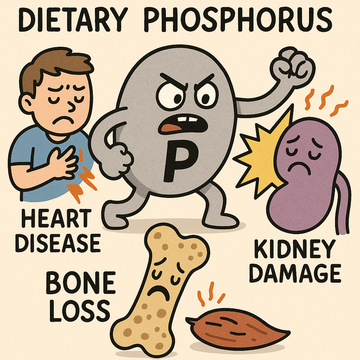Exploring Alkaline Buffers: Supporting Healthy Digestion With Designer Electrolytes
by Christopher Brainard on Jul 30, 2025

The Role of Alkaline Buffers in Digestive Health
The stomach’s environment is fascinatingly complex, with pH levels and enzymes like pepsin playing key roles in digestion. Many people are curious about how alkaline buffers — such as bicarbonates and citrates paired with minerals like sodium and potassium — might support a balanced digestive system. This post explores the science behind these buffers and how they may contribute to healthy pH regulation.
The Acid–Pepsin Connection
Pepsin is a digestive enzyme responsible for breaking down proteins and is activated by the acidic environment of the stomach. Some research has examined whether alkaline water with a pH of 8.8 may help reduce pepsin activity in acidic environments, which is of interest in acid-sensitive conditions like reflux.
See:
See J.A. Koufman and N. Johnson. (2012) "Potential benefits of pH 8.8 alkaline drinking water as an adjunct in the treatment of reflux disease." Ann Otol Rhinol Layngol. 2012 Jul;121(7):431-4.
How Bicarbonates and Citrates Work
The body naturally uses bicarbonate and citrate to help regulate pH:
-
Bicarbonate: May help neutralize dietary acids when taken with meals. Some researchers associate this buffering action with benefits commonly seen in alkaline dietary patterns, such as reduced systemic acid load and modified nutrient absorption.
-
Citrate: Metabolized in the liver and kidneys into bicarbonate, citrate may contribute to the body's systemic buffering systems over time.
Together, these compounds are often studied for their roles in maintaining healthy pH balance in the body, especially in the context of diet and digestion.
Choosing the Right Minerals
Alkaline buffers are typically bound to minerals like sodium, potassium, calcium, or magnesium. Sodium and potassium salts tend to be lighter, more soluble, and easier to process than heavier minerals. As such, sodium and potassium forms of bicarbonate and citrate are commonly explored in dietary strategies intended to support acid-base balance.
These statements have not been evaluated by the Food and Drug Administration. This article is for educational purposes only and does not diagnose, treat, cure, or prevent any disease. Please consult your physician before making any changes to your health or diet.



